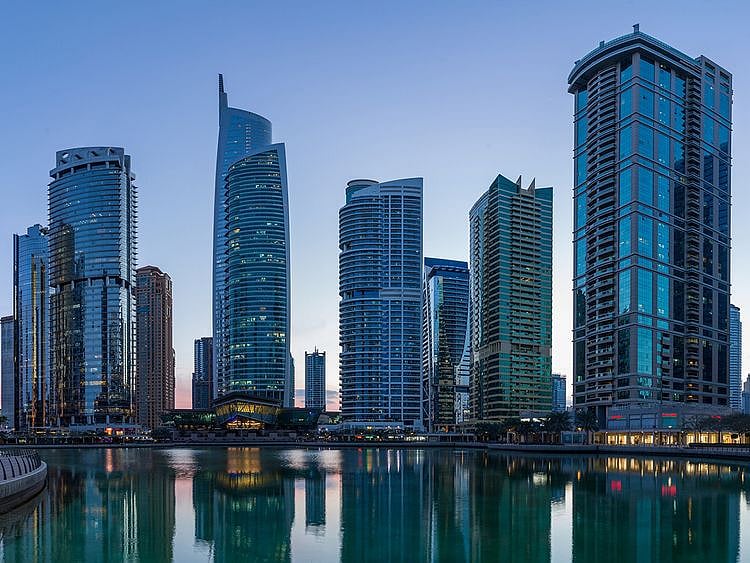UAE free zones take lead in drawing new businesses as corporate tax rules become clear
Demand for 'physical' offices rises sharply at UAE free zones as tax rules become clear

Dubai: Free zones in the UAE are reinforcing their status as the go-to places for new businesses – both domestic and those coming in from overseas – with more clarity available on corporate tax incentives ‘designated’ zones can provide to tenants.
The UAE’s tax authorities have made it clear that businesses based in qualifying free zones get to have 0 per cent tax rate, provided certain key conditions are met.
Even otherwise, free zones have been drawing heavy interest in the year-to-date, especially with new businesses to the UAE seeking office space. In fact, demand for commercial space in free zones was the first to stage a strong recovery, while those based in the mainland has been playing catch up in recent weeks.
It’s the same whether it’s demand for space at Jebel Ali Free Zone (currently undergoing another round of expansion), DWTC, the DMCC hub, Kezad in Abu Dhabi, or DIFC.
At the start of the year, there had been some speculation that new/existing businesses would take a wait-and-see approach on whether they should opt for a free zone base or opt for the mainland license. This had to do with the introduction of the UAE’s corporate tax, and business owners want to know what sort of advantages a free zone presence would provide them. More specifically, what would exempt them from the 0 per cent tax rate.
Less need for 'virtual' office address
Today, more of these incoming businesses require actual ‘physical’ spaces rather than just a ‘virtual’ address.
“Interestingly, clients are now more interested in physical offices instead of just virtual workspaces that typically are used when obtaining a free zone license,” said Nathan Gatland, Director at OpenHub, part of the property firm Betterhomes.
“In comparison to last year, there's been a 21 per cent increase in international clients coming into the UAE for the first time and choosing physical office space over virtual workspaces (available in select free zones).
Free zone lease rates
In Dubai and elsewhere, free zone leases rates have been on the rise, (though nowhere near the kind of upward swings seen in the residential space). But businesses can still get a broad range of pricing options and then take a decision on where they should be.
“In areas like JLT, the average lease rate is around 200 per square feet due to many available buildings,” said Gatland. “On the other hand, in places like DIFC, the average is about 300 per square foot. Yes, generally, prices are increasing.”
While DIFC has seen a raft of new global fund managers take up swank offices through the recent past, other free zones in Dubai – such as Internet and Media cities – continue to draw in a fair share of tech businesses. Their parent company Tecom confirmed as much at the time of announcing their first-half 2023 results. (Tech industry sources say the AI led business momentum will be the next big wave, creating more leasing opportunities.)
Free zone or mainland?
“The landscape has evolved in terms of the decision-making factors businesses consider choosing between a free zone or mainland,” said Gatland. “While corporate tax used to be a dominant factor influencing this choice, a more nuanced picture is emerging.
“Businesses are now opting for more intricate and well-considered structures, reflecting a deeper understanding of the various advantages each setup offers.”
Going aggressive on incentives
The other growth area for free zones when it comes to leasing is from crypto businesses, with ADGM, DWTC and DMCC seeing a good number of newly licensed entities. Ras Al Khaimah has its Digital Asset Oasis gunning for its share of these entities.
“Whether it’s blockchain, Web3 or crypto, new business activity still has lots of room to develop in the UAE,” said the business development officer at a tech firm. “These businesses will naturally gravitate towards a handful of free zone hubs, because they want to be part of the same cohorts.
“Some of the leasing incentives free zones are offering are unprecedented, plus all the licensing approvals that come with it.”
All of which should mean a smooth ride for UAE free zones...
Sign up for the Daily Briefing
Get the latest news and updates straight to your inbox
Network Links
GN StoreDownload our app
© Al Nisr Publishing LLC 2025. All rights reserved.